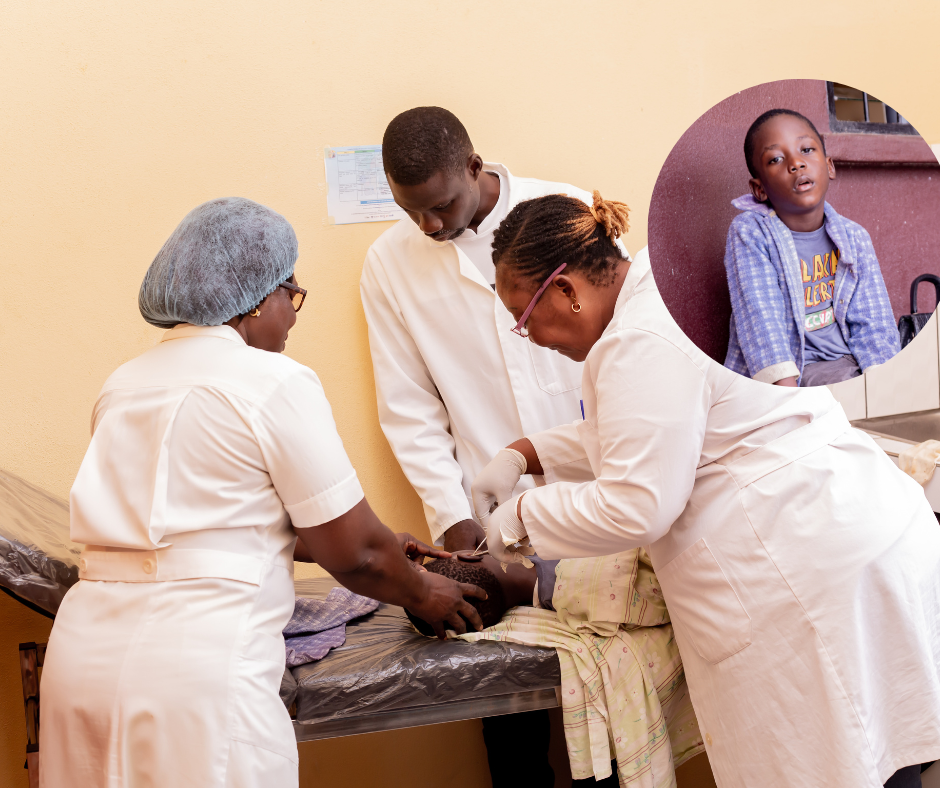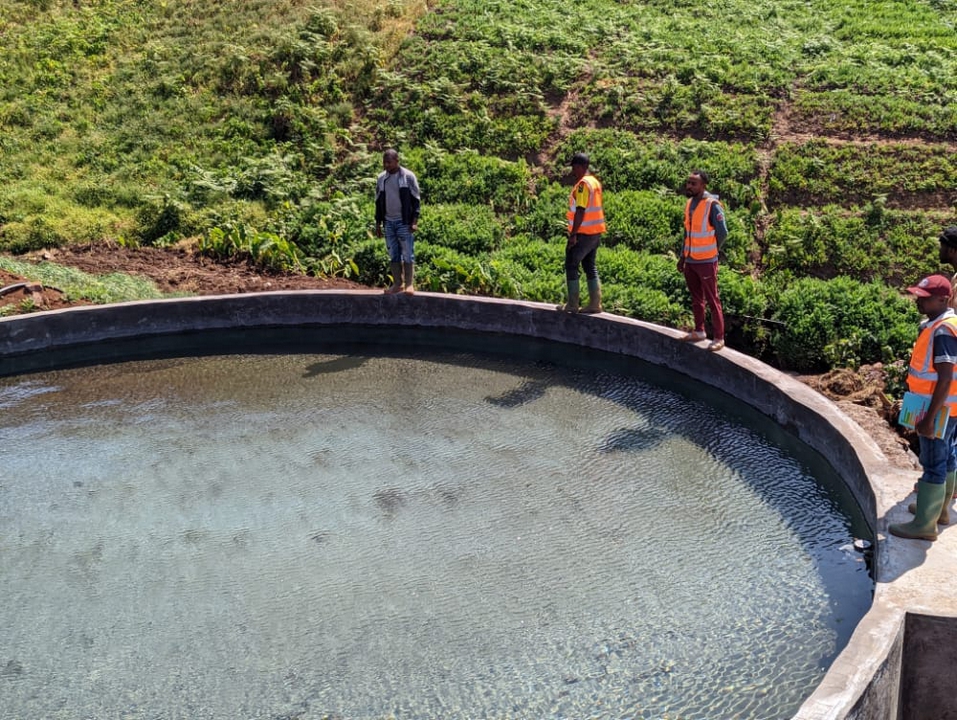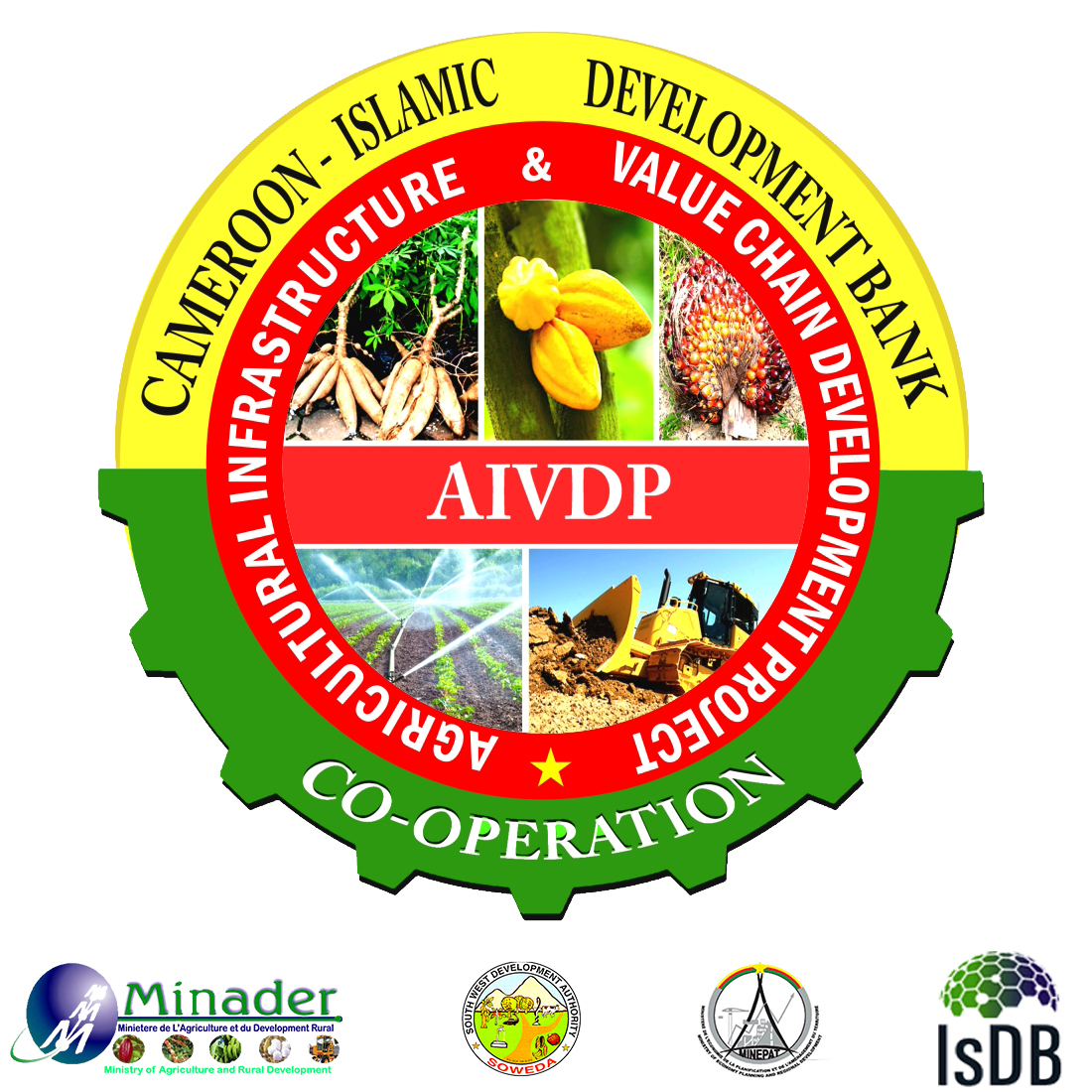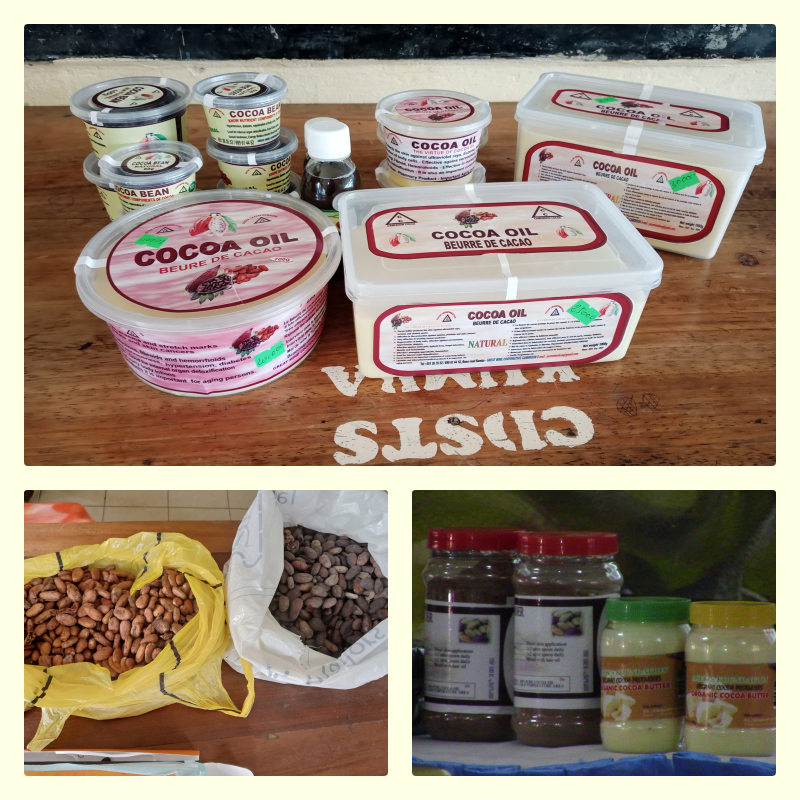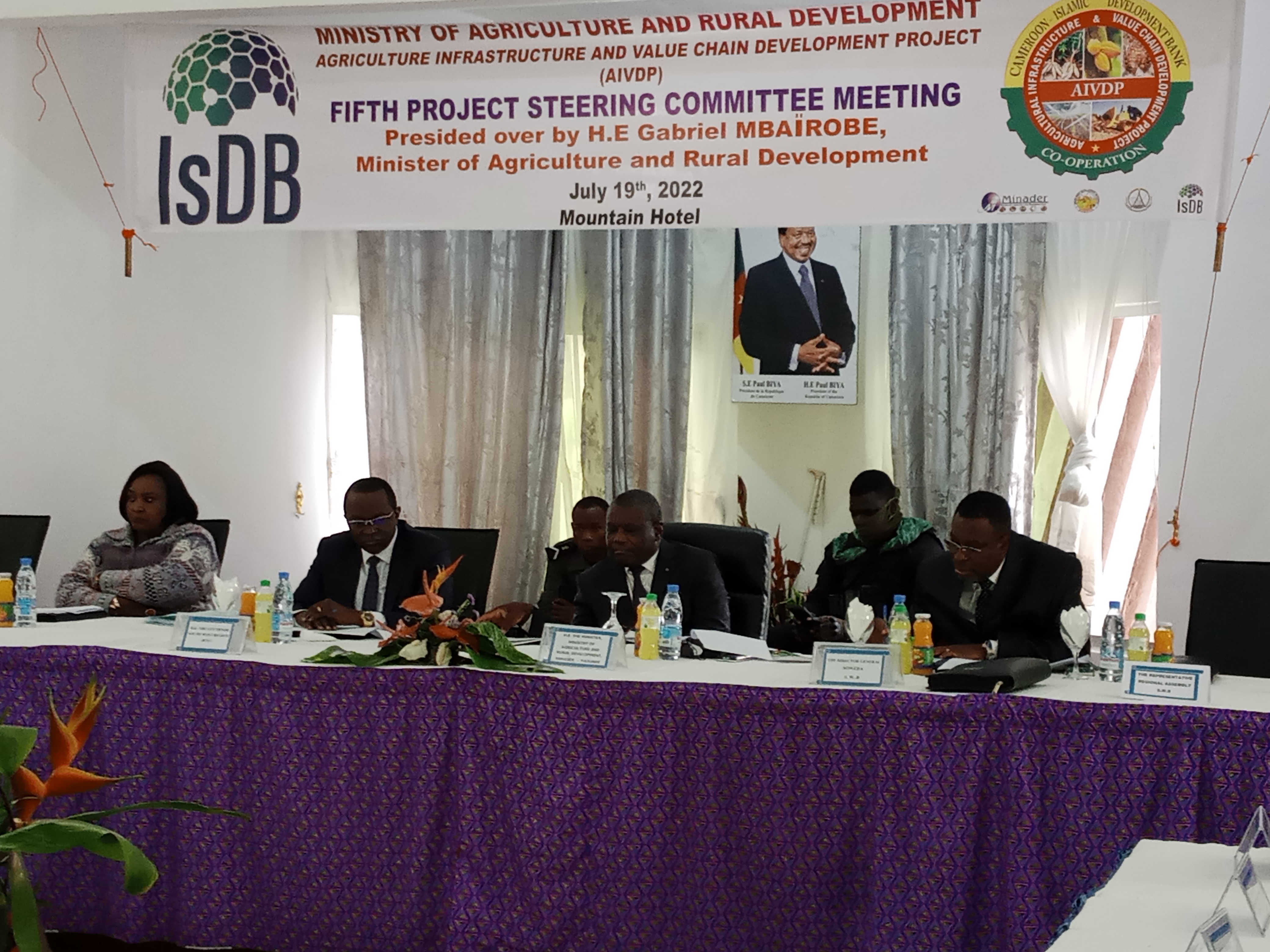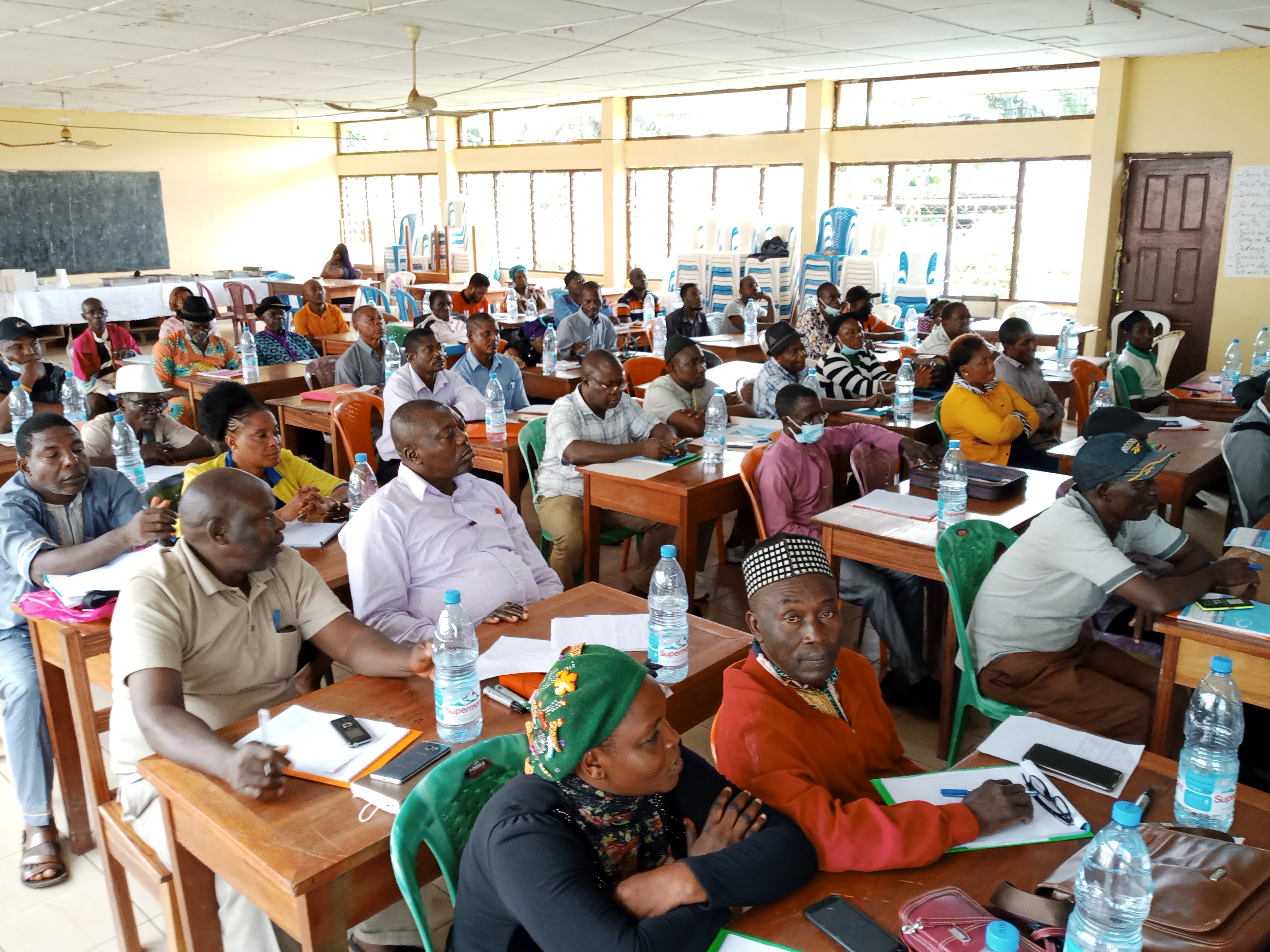
‘Why is the person who takes one 1kg of cocoa to make chocolate, richer than a farmer who simply harvests cocoa?’- a defining question posed to participants during the first and second session of the Cocoa Value Chain Development workshops hosted by AIVDP. The workshops, which saw the participation of cocoa producer organizations from Fako Mountain, Lakes, Ndian and Mungo Basin, took place from the 17th to the 19th August in Limbe and 31st -2nd September in Kumba.
Witnessing the participation of approximately 88 cocoa farmers, the capacity building sessions, were designed to build capacities among farmer leaders in upgrading and managing their cocoa value chain. The latter will assist them in formulating effective action plans for integrated production and marketing strategies for their cocoa.
In his opening speech Dr. Besong Ogork encouraged farmers to embrace all aspects of the value chain from production to transformation into finished products, for increased livelihoods, despite the current challenges faced in the cocoa subsector.‘The impact of the crisis is very high, some cocoa farms have been abandoned or sold, but we can brainstorm holistically on how we can develop this cocoa value chain and stop the massive exportation of beans by empowering the cooperatives that you are. If we process what we grow that is how we will produce jobs. Let’s put into practice whatever we learn here and teach our farmers.’’
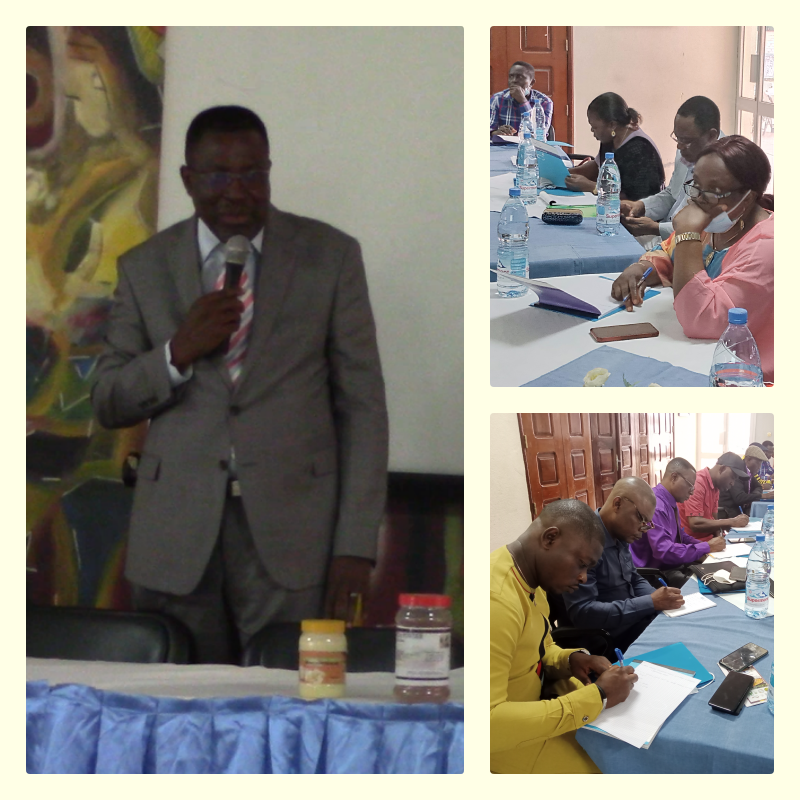
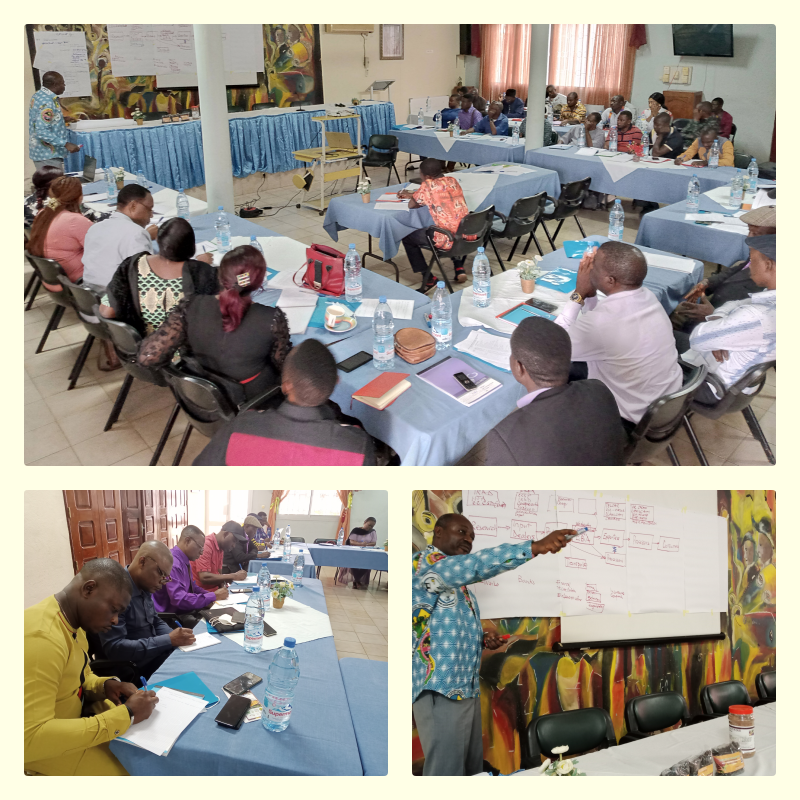
Above (Left): Dr. Ogork addressing participants during opening speech Right: Workshop in session as modules are presented
The three day workshops covered a range of subjects to address concerns participants disclosed as impediments in conducting business activities. Topping the list of hindrances encountered in cocoa farming were: the limited access to chemicals, high transportation costs and black pod disease affecting cocoa yields. Improving quality of cocoa beans, acquisition of knowledge in drying techniques, cocoa value chain and cocoa production ranked high for areas in which participants wished to strengthen their capacities. As such, presentations such as Post Harvesting Techniques, Drying Methods of Cocoa Beans, Value Chain Concept and Approach Cocoa Value Chain Upgrading and the Value Income Potential of Cocoa and Cocoa By Products were conducted.
For those in attendance, the session held new discoveries such as the module Analysing Margins and Profitability in the Cocoa Value Chain and the use of devices such as the Diki John. ‘I was impressed with the way the Diki John was used to show us how to determine the humidity rate of cocoa beans, especially as I had never seen this before,’ says Mr. Ku Silvanus, a member of Ekondo Titi New Generation Cooperative in Ndian Basin.
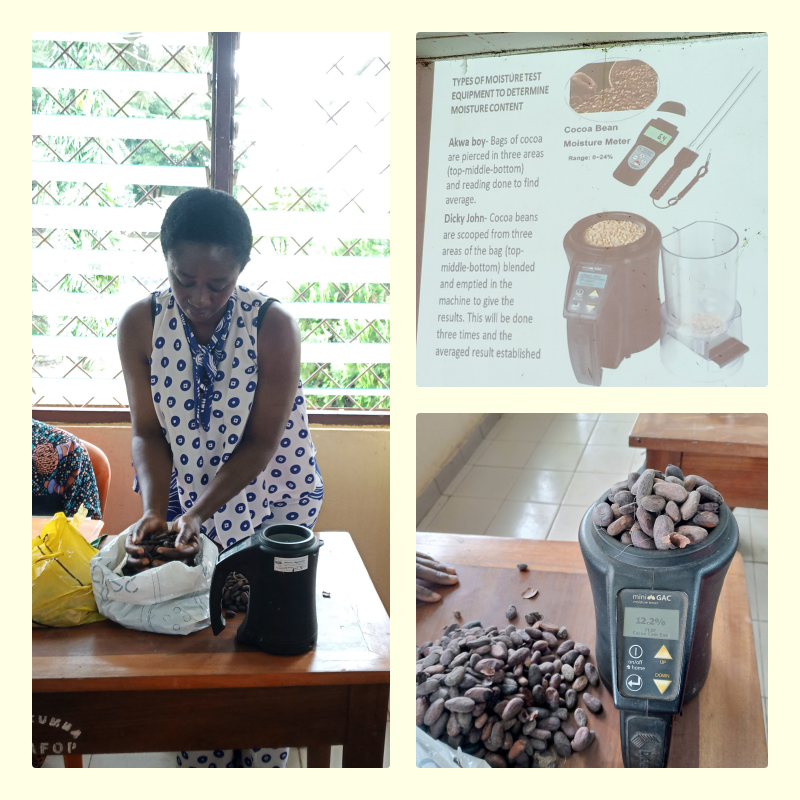
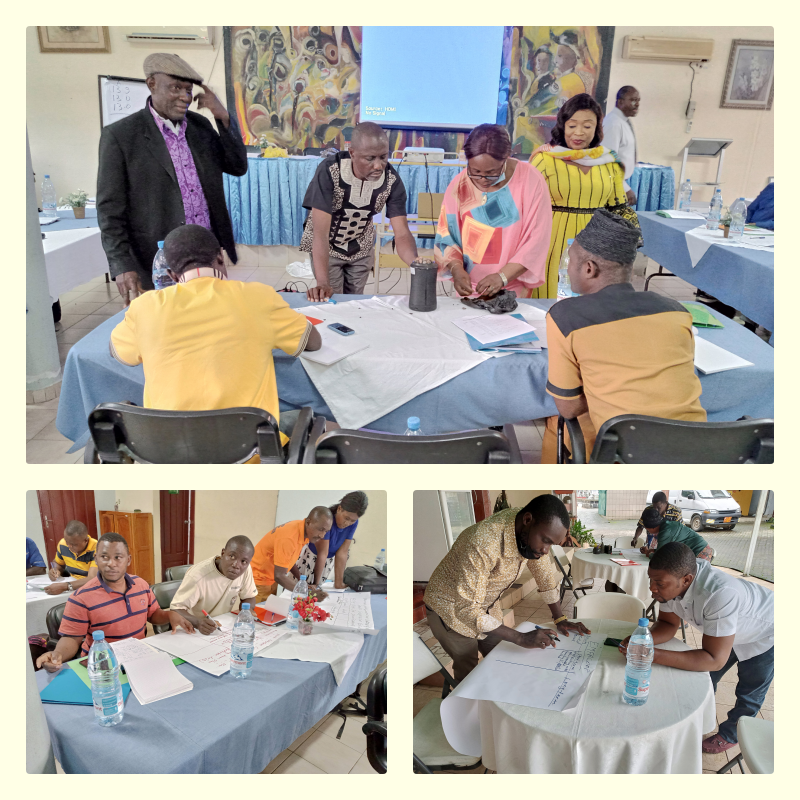
Above : Participants testing moisture content of cocoa beans using a Diki John and participating in Group Work activities
The timely workshops served as precursors to two cocoa semi industrial processing units to be constructed on the grounds of SOWEVCU and MACEFCOOP, longstanding coco cooperatives in Kumba and Mamfe. Attendees of both workshops would also be the beneficiaries of 111 solar greenhouse cocoa dryers provided by Project. Solar cocoa dryers, a cheaper and efficient alternative of drying cocoa, will serve in enhancing the quality of the dried beans in comparison to the traditional open sun drying method which participants such as Mr, Foche Richard, a member of cocoa cooperative from Mungo Basin, have deemed a major obstacle, “We have been used to drying cocoa in on the ground which led to contamination or using ovens which left the our cocoa beans with a smoky unpleasant taste. These dryers will really assist us in producing cocoa that reaches our consumer’s standards and as result, will be easier to sell.’’
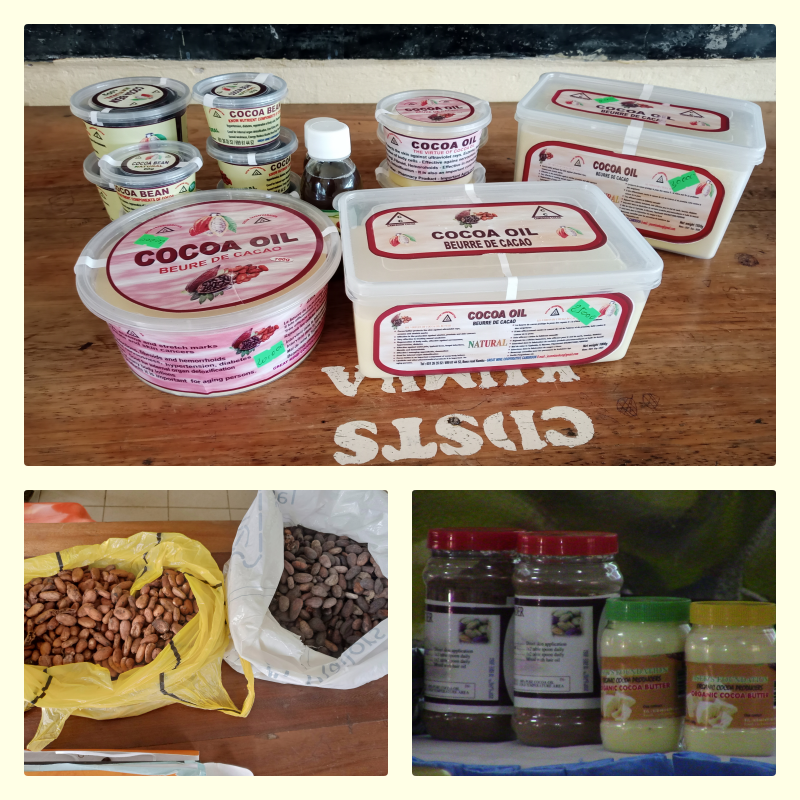
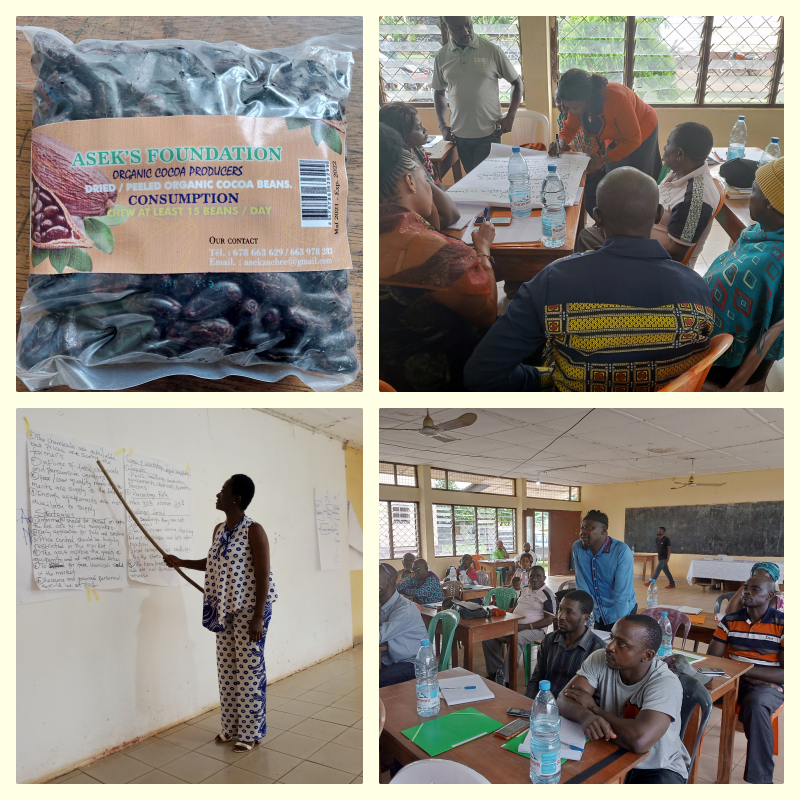
Above : Display of finished cocoa products during Workshop and Participants presenting Results of Group work exercises
A resident of Mbonge, Mme Blanche Eyabi Victorine, a cocoa farmer in Lakes Basin is elated at the news of the construction of the semi industrial coco processing mill in Kumba reciting, “This semi industrial cocoa processing unit is something we’ve been needing for as long as I can remember. Its location is so close so we will easily be able to feed it to transform our cocoa beans into high quality finished goods such as cocoa butter, chocolate bars and cocoa oil. This is going to give us a wide market and create a lot of employment opportunities for our community. We’ll be able to give our children the futures we want while ridding ourselves of poverty.’’
The Project, which has long been a champion for gender mainstreaming also addressed gender inequality in the cocoa value chain, encouraging the involvement of women and youth. The module, led by the Project’s Gender Development Officer, resonated with many women and youth in attendance such as Mme Mirel a mother of four and long-time cocoa farmer. ‘I was able to learn that we as a women, I have rights. That we shouldn’t be side-lined to farm cassava or yam and that we are just as capable as men of buying our own land and farming cocoa, so that we too can assist in providing for our children’
Cocoa producers and traders other areas of the Region will have the opportunity to attend future workshops in the upcoming months where they can expect to leave with the tools necessary to progress as prominent actors in the cocoa value chain.
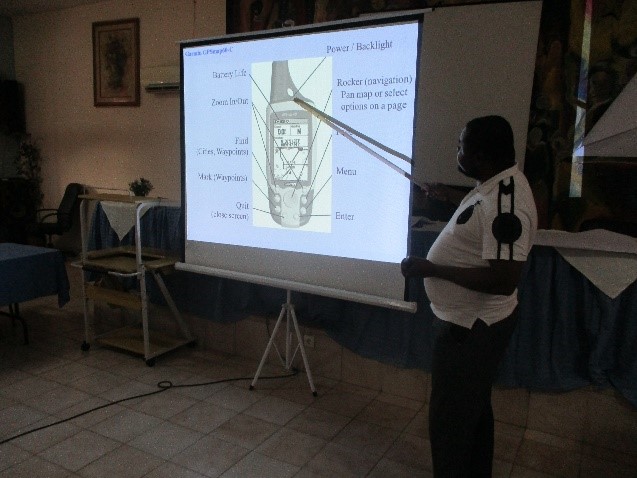
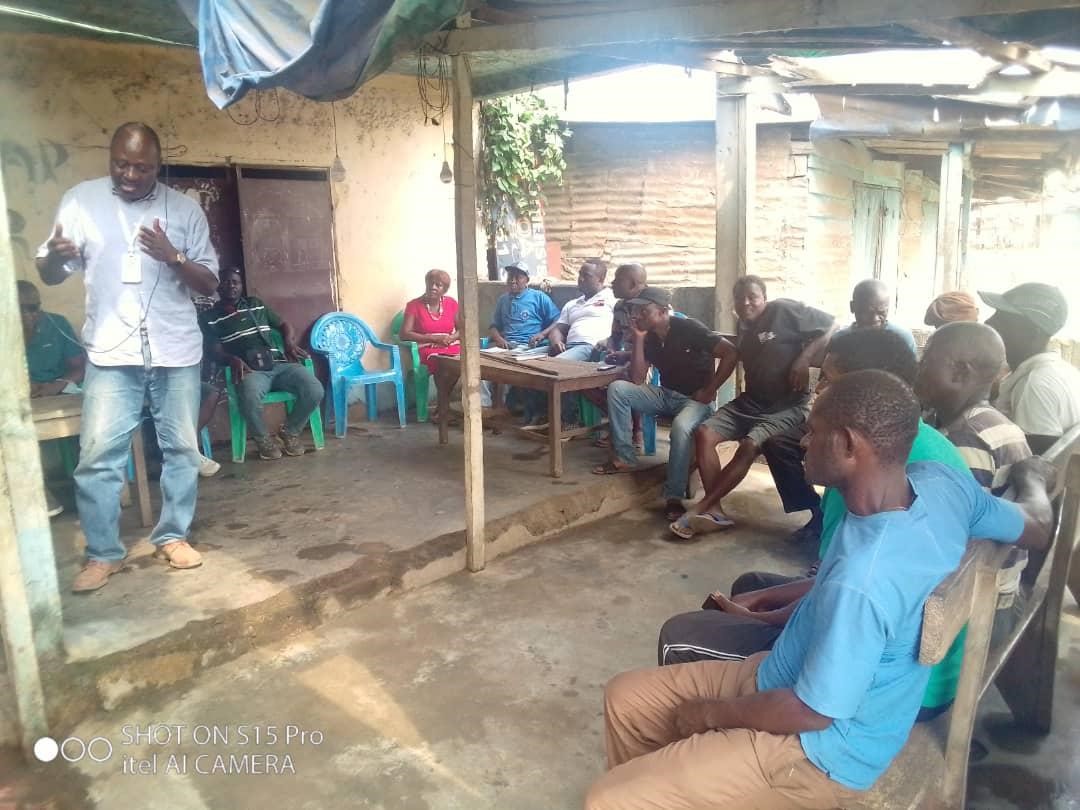
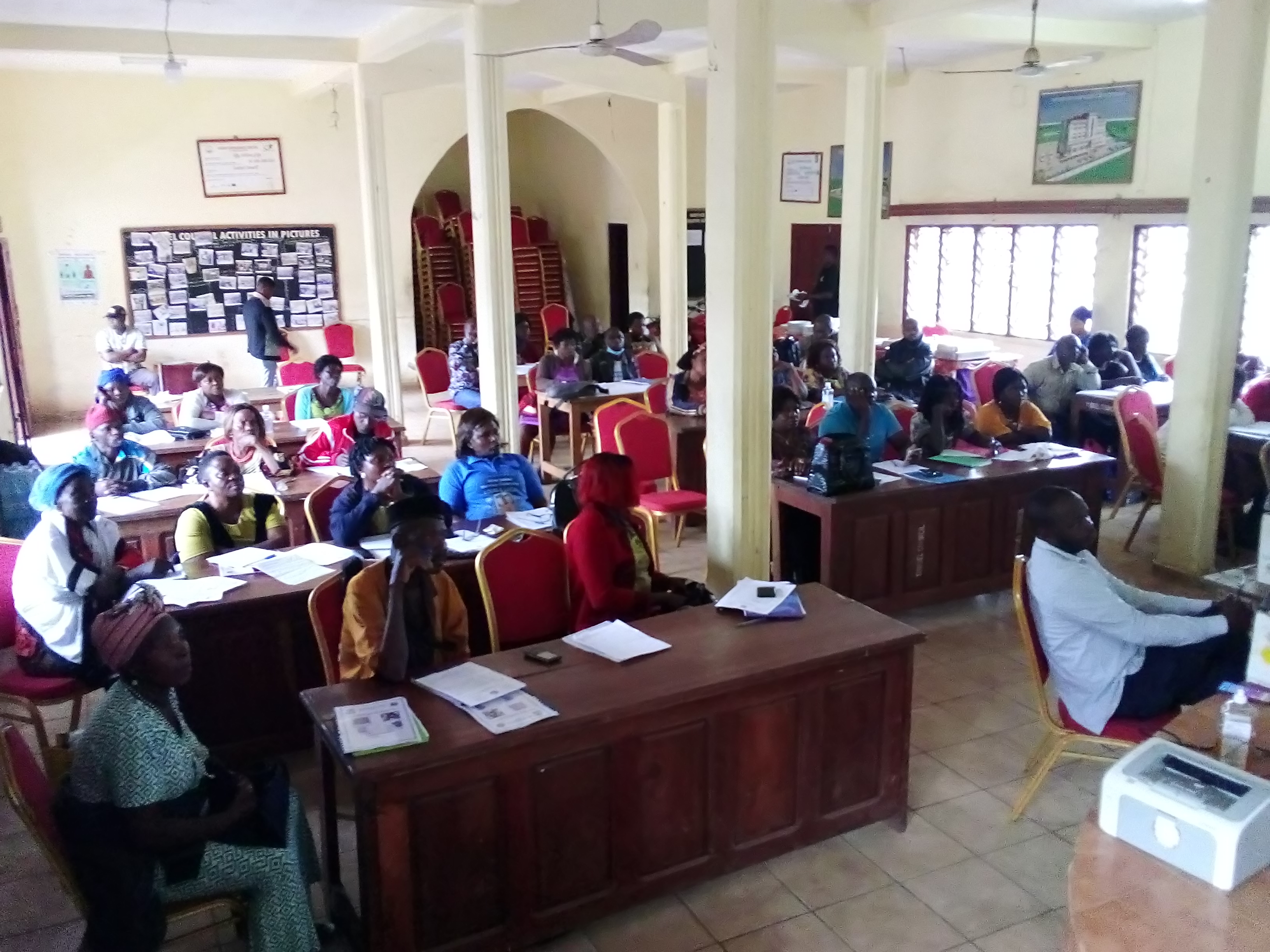
.png)
.png)
